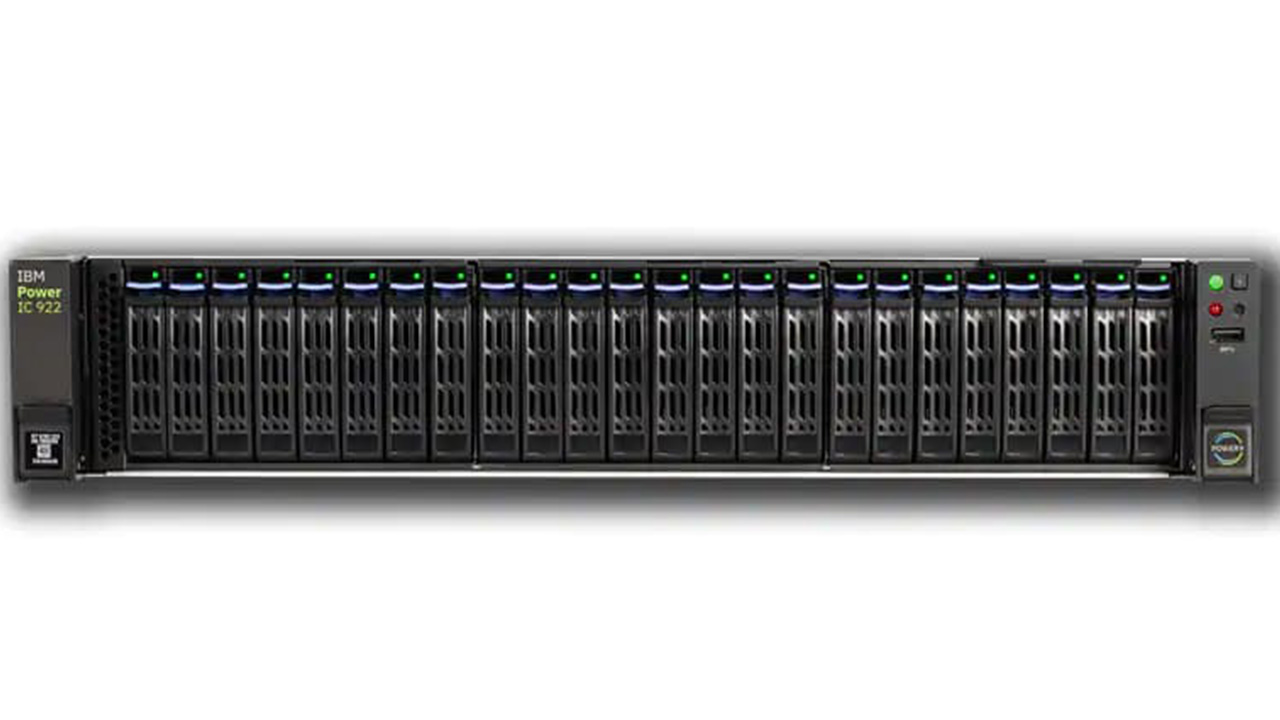
Big data and artificial intelligence are increasingly ubiquitous in society today. From social networks and ecommerce websites to streaming video, apps and other emerging technologies, it is estimated that more than 2.5 million terabytes of data is generated worldwide every day, according to Dr. Arghya Das, assistant professor of computer science at the University of Wisconsin-Platteville. Analyzing this data, Das said, can help answer fundamental questions of basic science, social science, humanities, life style and more. However, laptops, desktops and small servers lack the computational power to process the data. Thanks to a recent collaboration with IBM and OpenPOWER Foundation, spearheaded by Das, UW-Platteville is now home to a high-performance computing server.
The server is a proof of concept system on loan from MAPSYS Inc, an IBM top tier business partner with deep artificial intelligence skills. MAPSYS specializes in HPC solutions within major research universities. MAPSYS and IBM resources worked to configure the server with a proper HPC environment to support interdisciplinary research across campus. The high-performance computing server uses IBM’s POWER9-based technology, coupled with Nvidia’s advanced Tesla GPUs, resulting in extremely fast computations.
“As the name suggests, a high-performance computing server is made for high – in fact, very high – performance,” said Das. “It aggregates a huge amount of computing resources, such as a lot of processing power, huge memory and lots of storage space, in a way so that the box delivers much higher performance than one could get out of a typical desktop, laptop, workstation or a small server. It is used frequently nowadays in industry and research to solve large problems in science, arts, engineering, business, commerce, etc. The configuration of the server that we got is almost similar to each server of the world’s fastest super computing cluster – SUMMIT at Oakridge National Laboratory. This is a state-of-the-art configuration in the current landscape of high performance computing when it comes to big data analysis and artificial intelligence.”
Das said that one of the major motivations for acquiring the server is to enable faculty across campus to rapidly create prototypes and proof-of-concepts for their data driven projects and research, which will allow them to write more external grant proposals.
“There are several faculty members in many departments who are working on research projects utilizing the power of artificial intelligence, deep learning and data analytics that have potential to produce outstanding results if executed in conjunction with a big dataset. But those analyses are bottlenecked by the available computing resources. That large-scale research includes interdisciplinary research that can be supported by this server. Examples include smart city planning with huge sensor data analysis, large scale genomic analysis, large-scale hydraulic simulation research, dairy innovation with artificial intelligence and analytics to name a few.”
One of Das’s own research projects involves a collaboration with faculty from several UW System institutions, in which they are analyzing big data to understand issues in the rural Wisconsin education system, in order to improve the access to quality education at a lower cost.
“We plan to analyze a huge amount of education data for different majors and degrees – such as cost, mode of education (online/offline), course details, faculty details, etc. – from different universities in the state using this high performance computing machine to see if there is any particular pattern in these curriculums which may have strong correlation with student enrollment, retention, and learning outcomes” said Das. “This type of data driven research in the domain of education is unique and would not be possible without an HPC machine. In the end of this research, we believe we can propose several useful guidelines that can help the students to get better accessibility to education while at the same time the university generates expected revenue.”
The high performance computing server will also support a project for which Das recently won the WiSys COVID-19 challenge for rapid prototype development. His project involves expedition of the process of drug and vaccine discovery using big data analytics and machine learning.
Students will also benefit from the unique opportunity as undergraduates to work with supercomputing technology.
“With the explosion of data science jobs across the nation, the demand for skilled workers with knowledge of big data and AI has increased,” said Das. “Without an HPC server, students cannot get the idea and hand-on experience of analyzing data at scale. The process is often much different that handling a small dataset. With this server on campus, our students can get sound knowledge of analyzing data at scale on a cutting edge and industry-standard server. Consequently, they can get a significant advantage when they go to the job market."
Das is currently focusing on developing webinars and training programs to educate others on campus about the possibilities using the high-performance computing server. He said, thanks to this partnership with IBM, faculty and students at UW-Platteville now have the opportunity to collaborate on research with universities and industries nationwide.
“A corporate collaboration can open lots of opportunities, starting from teaching to research to job creation,” said Das. “And a big company like IBM with multiple services, product lines and foot prints of many different domains can help in all these aspects. Furthermore, we have a strong collaboration with OpenPOWER, an IBM-sponsored open platform to foster data-research and education by collaborating with hundreds of universities and industries across the globe. So, a collaboration with IBM together with OpenPOWER makes a complete education ecosystem. Using this ecosystem, students and faculty members of our university can collaborate with experts from top tier universities and big companies across the nation.”
For more information about the server, visit www.ibm.com/products/power-system-ic922.